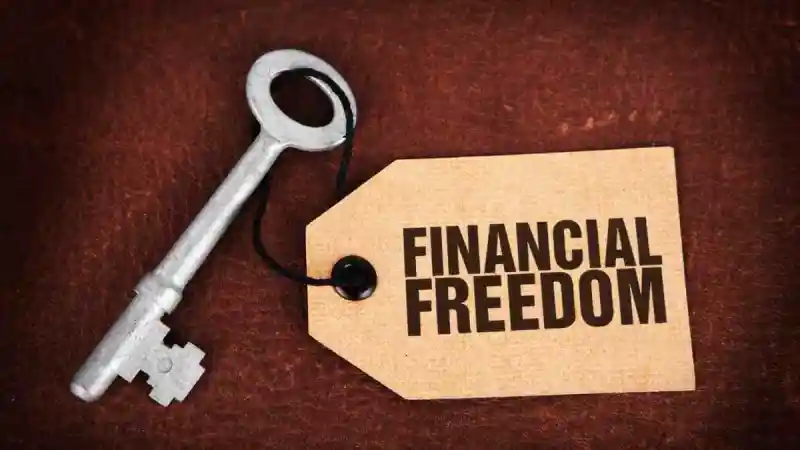Simple Habits That Lead to Financial Freedom

Financial freedom doesn’t happen overnight. It’s not just about earning more—it’s about developing the right habits, making smart decisions, and committing to a mindset that prioritizes long-term wealth over short-term pleasure. Many financially successful people didn’t win the lottery—they simply practiced a few simple, consistent habits that led them to a life of stability and choice.
Let’s walk through a story-like journey into the core habits that lead to financial freedom.
1. Paying Yourself First: The Non-Negotiable Habit
When Ada got her first job, she was thrilled. But every month, her salary disappeared quickly—spent on rent, food, data plans, and unplanned expenses. Then, she stumbled upon a concept: “Pay yourself first.”
She started putting away just 10% of her income before touching a single naira. It felt small at first, but over time, those savings grew. Paying herself first became her financial oxygen mask—a habit that created a buffer against emergencies and paved the road to investing.
Habit: Always save a portion of your income before spending on anything else.
2. Living Below Your Means: The Silent Power Move
Chinedu lived modestly, even when he earned more than his peers. He didn’t feel the need to upgrade his car, wear designer clothes, or post flashy updates online. Instead, he directed his “extra” income into savings and investments.
While others kept up appearances, Chinedu kept up progress.
Habit: Spend less than you earn, no matter your income level. Avoid lifestyle inflation.
3. Budgeting: Giving Your Money Purpose
Blessing used to say, “I don’t earn enough to budget.” But one day, she tracked where her money went. The results shocked her—impulse buys, endless subscriptions, and lunch takeouts ate up nearly 40% of her earnings.
That was the wake-up call. She created a simple monthly budget, giving every naira a job. That one habit—done consistently—gave her control, peace of mind, and eventually, the ability to invest.
Habit: Track your income and expenses. Make a monthly budget and stick to it.
4. Avoiding Bad Debt: Learning to Say No
Tunde once borrowed to buy a new phone—twice his monthly salary. It felt good… until the bills came in. Debt kept him locked in a cycle of repayment.
He learned the hard way that not all debt is equal. Borrowing for emergencies or investments is one thing; borrowing for show or fleeting pleasure is another. When he cut his credit card and avoided “buy now, cry later” traps, his finances slowly healed.
Habit: Say no to unnecessary debt. If you can’t afford it now, save for it.
5. Investing Early and Consistently: Letting Money Work for You
Amaka didn’t know much about investing at first. But she learned bit by bit—from books, mentors, and free online courses. She began small—N5,000 here, N10,000 there—into mutual funds, then stocks, then real estate.
Over the years, compound interest did its magic. Her money worked while she slept.
Habit: Learn about investments and start early, even with small amounts. Be consistent.
6. Building Emergency Funds: The Cushion That Saves You
Life is unpredictable. A job loss. A family emergency. A medical bill. Without a safety net, these can push anyone into debt.
Samuel started setting aside three months’ worth of expenses. It took discipline, but when the unexpected came, he was prepared. That emergency fund was more than money—it was peace of mind.
Habit: Build and maintain an emergency fund of at least 3–6 months' living expenses.
7. Continuous Learning: Stay Financially Educated
Markets change. Laws change. Opportunities evolve. Those who stay informed stay ahead.
People like Ifeoma made it a habit to read finance books, listen to podcasts, and learn from others’ mistakes. That continuous learning helped her make smarter decisions—from choosing insurance to identifying scams.
Habit: Read books, follow financial experts, and stay curious about money.
8. Giving and Gratitude: The Unexpected Multipliers
Finally, many financially free individuals practice generosity. Not just because they have more—but because giving reminds them of what they already have. It fights greed and builds community.
Femi tithed regularly and supported his younger cousins through school. Surprisingly, it didn’t make him poorer—it made him more intentional with his money.
Habit: Give with wisdom and live with gratitude. Money is a tool, not a god.
The Journey Begins with Small Steps
Financial freedom isn’t reserved for the wealthy. It’s built on daily choices. Small, intentional actions—saving, budgeting, investing, and learning—done over time, create a life where money no longer controls you.
It’s not about perfection. It’s about progress.
You don’t need to start with a million. You just need to start—with one simple habit at a time.







